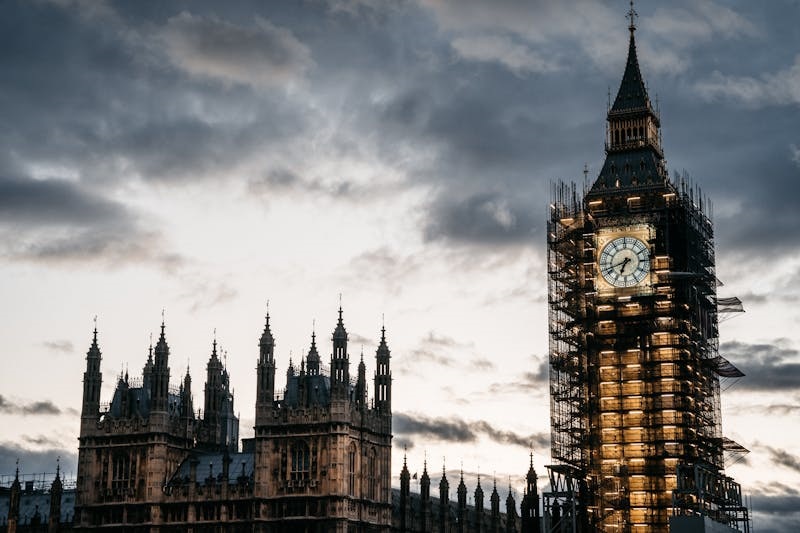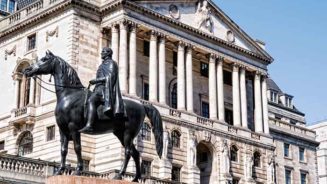The UK’s Chancellor Rachel Reeves delivered a much expected, and speculated on, tax raising Budget today (30 October) with rises in capital gains tax, employers NIC, IHT to be levied on pensions inherited and the end of the non-dom regime.
For CGT , the 10% lower rate rises to 18%, while the 20% rate is jumping to 24% including for residential property.
Sarah Coles, head of personal finance, Hargreaves Lansdown said: “The change is a blow for investors. This could have been worse, with suggestions of a doubling of the rate, but it’s scant consolation for anyone hit with a bigger tax bill.
“This doesn’t just affect those who are hit with a far bigger bill, it also makes investment less attractive for newcomers who don’t want to have to get to grips with a new tax risk. Already far fewer people in the UK invest than elsewhere in the world, and this could compound the problem.
“For existing investors, there’s a danger this will drive investor behaviour, and people will focus on tax considerations, rather than the investments that make the most sense for their circumstances. There’s also a danger they may hoard the assets – possibly until their death.
“It comes on top of the slashing of the tax-free allowance over the past couple of years from £12,300 a year in 2022/3 to just £3,000 in the current tax year. Investors also have to cope with the fact that frozen income tax thresholds have pushed more people into higher rate tax – automatically pushing up their capital gains tax rate. A combination of all these things means more people face paying more of this tax.
“Talking about things like capital gains tax as ‘wealth taxes’ obscures the fact that many people on average incomes, who’ve invested carefully throughout their lives, can face a tax bill when they rebalance their portfolio or sell up to cover their costs later in life. The annual allowance of £3,000 doesn’t stretch particularly far when you’re selling an investment you’ve held for 30 years or more, so investors should consider how to protect themselves.
“The government has said it’s committed to driving growth and investment in the economy, and investors holding shares in companies are a critical part of this picture – not least because UK retail investors are enthusiastic holders of UK equities: 26.4% of assets managed in the UK are held directly for retail investors. The tax environment should be built to encourage investment for the long term, supporting investment in growing businesses and returns for investors, to boost long-term resilience.
“It’s disappointing the government has decided to hike this tax without considering counteracting it with changes to taxes on investors more broadly. It means on top of this new tax blow, they pay 0.5% stamp duty on buying shares, one of the highest rates in the G7. Profits made by the company invested in are subject to corporation tax. UK stocks are often popular for income, but dividend tax allowance has been slashed to £500. Meanwhile, the capital gains tax allowance has been reduced to £3000 for individuals (just £1,500 for Trusts), the lowest rate since 1982.”
Employers NIC is going up 1.2% from April 2025, translating into a new rate of 15%, with a lower earnings threshold of £5,000.
Jon Greer, head of retirement policy at Quilter said: “The Chancellor’s announcement of a 1.2% increase in Employers’ National Insurance is designed to generate immediate revenues without directly increasing taxes on individual workers in theory. However, it represents a complex challenge for businesses as they grapple with higher payroll costs. It’s also a technical change that many people won’t have a full understanding of so will not cause the kind of furore that upping income tax might have.
“However, calculations show given the secondary threshold has dropped dramatically to £5,000 if an employee’s gross pay is £30,000 then an employer will see a £865.80 increase in their National Insurance costs for that employee. The total cost to employ someone on £30,000 will now be £33,750 compared to £32,884.20 under the previous rules. If a business wanted to keep their cost to that latter number than an employee’s gross salary would have to drop to £29,247.
“For many employers, particularly those operating on tight margins, this increase in NI is likely to prompt a re-evaluation of salary structures and potential pay rises. Salary sacrifice schemes where employees voluntarily reduce their taxable income in exchange for benefits like additional pension contributions or even cars or bicycles could become increasingly attractive. By leveraging these schemes, employers can reduce their NI liability while providing employees with enhanced retirement savings, making them an appealing option in an environment of rising costs. This therefore might turbo charge businesses application of these types of schemes.
“However, there’s a risk that businesses may choose to retain some of the NI savings from these schemes rather than passing the full benefit onto employees. This could lead to a situation where the intended boost to employee retirement savings is partially offset by employers managing their own cost burdens. Meanwhile, for those businesses that don’t adopt such schemes, the increased costs could dampen wage growth and limit hiring, with a knock-on effect on household incomes.
In what she described as a “Balanced approach” the nil rate IHT band is frozen at £325k and the residence NRB maintained.
But IHT is to be levied on pensions inherited.
BPR/APR is to be restricted to £1m per estate, with values over that taxed at 20%.
AIM shares were also hit with 20% tax on IHT rate.
Claire Trott, divisional director, retirement and holistic planning, St. James’s Place said: “The Chancellor’s decision to include pensions in the IHT calculations, alongside freezing to the allowances, will likely increase the number of estates that will pay IHT significantly above the current 6%. The devil will be in the detail to determine if this includes only lump sums, or if it also includes benefits passed down by way of an income.
“In addition, we need to know how this will work for defined benefit pension schemes, if included, where individuals have no access to increased income to pay a charge. The delay in implementation of this change is welcome, allowing these questions to be resolved and giving individuals some time to plan.”
Victoria Price, managing director at Alvarez and Marsal Tax, commented: “Today, the Chancellor has dropped a bombshell on family businesses. Restricting business relief to a maximum of £1m could have dire consequences for some of the UK’s most historic companies potentially making it difficult for them to remain in family ownership.”
Rachael Griffin, tax and financial planning expert at Quilter: “The decision to continue the freeze on the IHT nil rate band (NRB) at £325,000 will pull many more estates, which many would consider relatively modest, into the inheritance tax net. The NRB has been frozen since 2009 and if it had risen in line with inflation, it should now be £503,879 so freezing this until 2030 will make this threshold even more antiquated. We are already seeing record breaking IHT receipts, and this change will compound this.
“Inheritance tax, which is already much maligned due to its complexity, will now affect more estates, particularly in areas where property values have increased sharply, pushing even average homes into the taxable category.
The average net estate value reached £334,173 in 2019/20, meaning many will automatically surpass the NRB and may be faced with an IHT bill to pay. This has likely risen considerably in the years since, and the rapid increase in house prices will have played a significant part.”
The Chancellor further confirmed the abolition of the non dom regime, with the TRF regime to be extended from 2 to 3 years and a replacement put in place but only headlines in her speech and no mention of IHT and trusts.
Craig Ritchie, Partner at GSB Wealth said: “The abolition of the non-domicile scheme and move to a residency based scheme presents huge opportunities for UK expats, who intend to remain outside of the UK to pass on wealth free of UK IHT. For those transitioning back to the UK, there is an opportunity to take advantage of the generous four-year foreign income and gains (FIG) regime.”





